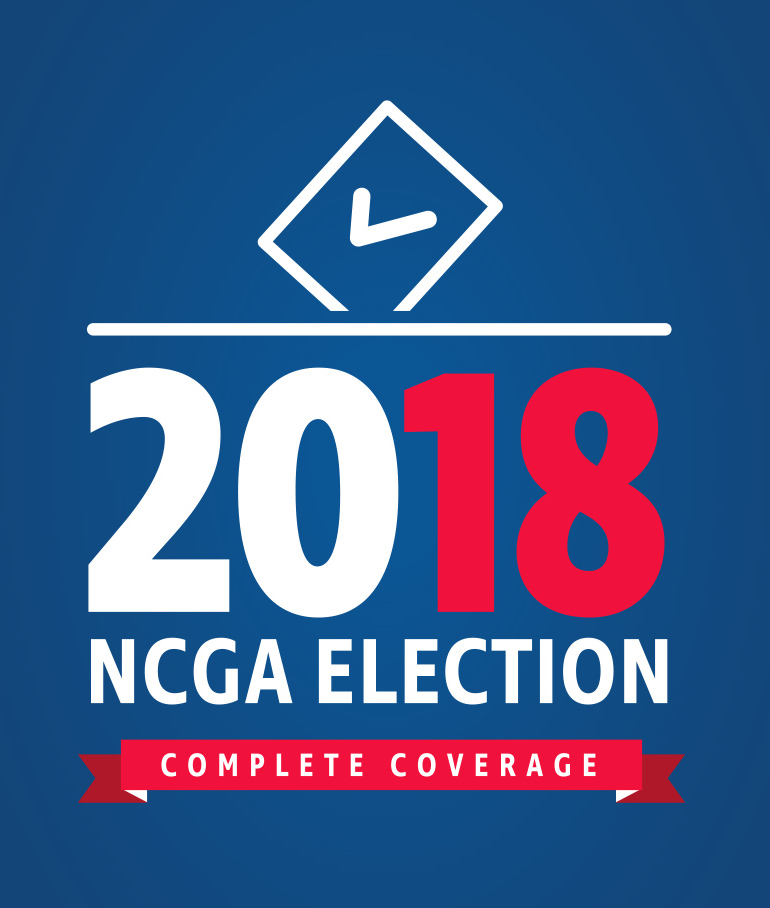 State House District 16, Pender and eastern Onslow counties.
State House District 16, Pender and eastern Onslow counties.
- Carson Smith. Occupation: Sheriff of Pender County. Education: Topsail schools. Career highlights: 34 years of public safety experience. Pender County emergency management coordinator/fire marshal during five hurricane disaster declarations: Bertha, Fran, Bonnie, Dennis, and Floyd. Current president of the N.C. Sheriff’s Association.
- John Johnson. Occupation: Retired after 30-plus years at AT&T. Runs small business and family farm. Education: master’s in business administration from The Citadel, Military College of South Carolina; bachelor’s degree in business administration from University of North Carolina-Wilmington. Pender High School. Career highlights: AT&T project manager overseeing large information technology projects.
Democrat John Johnson of Burgaw and outgoing Republican Pender County Sheriff Carson Smith of Hampstead agree that providing a pro-business climate is what’s needed to give N.C. House District 16 an economic jolt. But their approaches couldn’t be more different.
The candidates are squaring off in the Nov. 6 general election to fill the open seat. Incumbent GOP Rep. Bob Muller isn’t seeking to retain the office. He was appointed to the position in September 2017 to replace Chris Millis, who resigned. The district leans Republican, according to the N.C. FreeEnterprise Foundation, which closely tracks elections.
Johnson said he would push legislation to support well-paying jobs in Pender County and advocate for offering inducements to companies to locate in rural North Carolina.
“Most of the state’s economic development efforts are to recruit jobs to urban areas, leaving the rural areas to languish,” Johnson said. “Google Data Center located in rural Lenoir, in Caldwell County. The decision was a political decision. If that can be done, the same thing can be done for Pender and Columbus counties.”
Smith said subsidies create an uneven playing field. Government should stay out of the way, placing the responsibility to create jobs with those who run businesses.
“I’m not big on incentives,” Smith said. “I don’t think it’s fair to all other businesses to give incentives to some businesses. When you create a business climate that’s fair to all, businesses are going to come anyway because they want to be here.”
Smith said some businesses in rural areas of the district have a problem with access to wired internet. He wants to push legislation to alleviate the problem.
“Jobs are a big issue in this district,” Smith said. “In the very rural areas, it’s harder to find jobs. I want to make the business climate such that businesses would want to come to the area.”
Johnson said he intends to restore the film industry and work to craft bipartisan legislation that protects and expands opportunities for local businesses and entrepreneurs.
“The biggest problems facing the district right now is the availability of well-paying jobs,” Johnson said. He vows to work across party lines to change that.
“As an MBA, I understand finance, business, law, and economics. There are analytical tools for objectively determining the best course of action. There are ways you can make a decision that’s not based on emotion and politics,” Johnson said. “That’s why my motto is … ‘It’s not about the politics, it’s about the people.’”
Contending to represent a district still struggling to recover from Hurricane Florence, Smith and Johnson have different ideas about how to approach future disasters.
Smith, who has a background in emergency management, supports funding improvements to the county’s transportation routes to harden and elevate key roads to ensure the area is not cut off from supplies of food, gas, and other necessities when flooding occurs.
Johnson says the state should spend more on routine inspections and repairs of bridges, dams, and levees. He supports releasing water from lakes before hurricanes strike as a way to prevent flooding.
As the state continues to grapple with an opioid crisis, Smith said his experience and street knowledge in law enforcement can help voters by identifying strategies to deal with the issue.
The candidates have differing views on two of the six constitutional amendments on the ballot.
Johnson said the proposed voter ID amendment is unnecessary and would hurt senior citizens and rural residents who don’t live near a location that provides picture IDs. Johnson also opposes reducing the income tax cap from 10 percent to 7 percent. He said that would hamper the state’s ability to provide resources for schools, infrastructure repair, and environmental protection.
Smith supports Voter ID to ensure “one citizen, one vote.” He favors reducing the income tax cap from 10 percent to 7 percent.